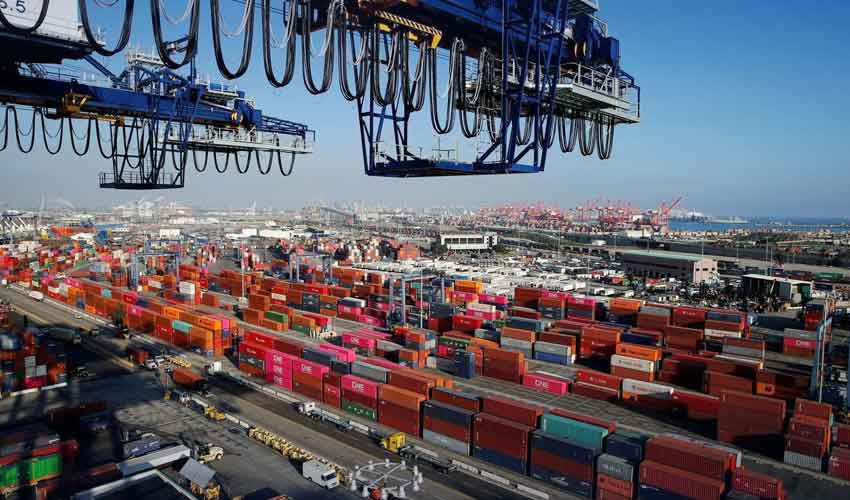Islamabad, Sep 18: Pakistan’s exports experienced a notable 14.42% increase during the first two months of the fiscal year, surpassing $5 billion, according to the Pakistan Bureau of Statistics.
Key Contributing Sectors:
- Food Products: Exports surged by 42.39%, generating over $1 billion, driven by rice, fruits, vegetables, tobacco, sugar, and meat.
- Textiles: This key sector saw a 5.37% increase, with exports exceeding $2.91 billion. Items such as cotton fabrics, ready-made garments, knitwear, and bed linens showed significant growth.
- Other Sectors: Exports of petroleum products, leather gloves, footwear, chemicals, and medicines also saw positive trends, contributing to the overall rise.
This upward trend highlights Pakistan’s strengthening export performance across multiple sectors.
The engineering sector demonstrated strong performance in Pakistan’s export growth, with electric fans, transport equipment, and auto parts standing out. Additionally, exports of precious stones, jewelry, and various other goods contributed to the overall increase in exports.
However, some sectors experienced declines. Exports of cement, furniture, canvas footwear, and leather garments saw a drop, as did fish, dry fruits, cotton yarn, raw cotton, and carpets. These mixed results illustrate the varied dynamics of Pakistan’s export performance amid global economic challenges.
On the import side, Pakistan’s food import bill saw an 18% reduction in the first two months of the fiscal year, reflecting a significant drop in the consumption of imported foods.
Pakistan’s food import bill saw a significant decline, falling to $1.06 billion during the first two months of the fiscal year.
The sharpest drop was in milk imports, which decreased by 23%, reducing costs to $19 million. Tea imports also declined, with the volume dropping from 46,451 tonnes to 38,847 tonnes, and the bill shrinking from $110 million to $97.9 million.
Soybean imports saw the largest percentage decrease, plummeting by 52% to $22.2 million. Palm oil, one of Pakistan’s major imports, experienced a 10% drop, reducing costs to $495.9 million.
Pulses imports followed the trend, dropping by 21% to $133 million, and various food grains fell by 33%, totaling $245.3 million.









